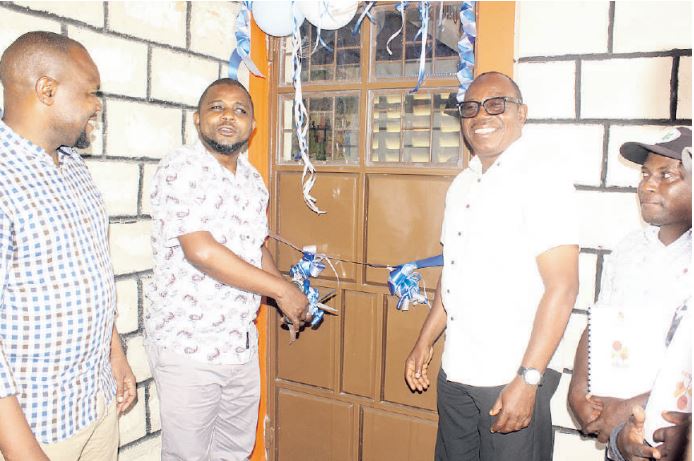For a long time, families raising children with incapacities in Kwale province have battled to get to early determination, particular care, and therapy.
Often, they were constrained to travel long distances in search of such pivotal administrations, or more awful, go without any support.
What was once a far-off dream, be that as it may, is presently a reality with the launch of the county’s to begin with Tangible Integration Unit at Kids Care Kenya in Lunga Lunga, Kwale.
The state-of-the-art middle has been propelled by Kids Care in collaboration with the Service of Wellbeing and the National Chamber for People with Incapacities (NCPWD).
It is anticipated to be a transformative point of reference for children living with tactile and formative challenges, as well as those with cerebral paralysis, solid dystrophy, and other conditions. It’s for grown-ups as well.
The office can serve at slightest five children per session, giving opportune and restricted support to a population long ignored by the healthcare system.
NCPWD province incapacity administrations officer Emily Mwembe said the office will bridge a basic hole in access to incapacity administrations, empowering early determination and bolster for children and adults who regularly stay undiscovered or misjudged within their community.
“With the dispatch of this unit, trust is being reestablished as mediations custom-made to move forward communication, portability, and generally freedom will be offered,” Mwembe said.
She said it will not as it were bring basic administrations closer to the individuals but also reestablish nobility, advance strengthening, and light up a brighter future for inhabitants with disabilities.
Mwembe said the middle marks a turning point in how the community sees and bolsters people with incapacities (PWDs), particularly children who have long been underestimated due to restricted access to comprehensive services.
Through restorative, mental, and instructional evaluations, the middle will offer assistance in deciding children’s individual needs and coordinate them to reasonable learning, teaching, or government strengthening programmes.
Mwembe underscored the significance of early intervention, saying numerous children with incapacities go undiscovered and unsupported for a long time, which significantly decreases their potential.
The office aims to break the obstructions that have kept numerous children covered up in homes.
The middle will be a center where caregivers, instructors, and wellbeing experts can collaborate to make redesigned care plans and screen the progress of PWDs.
Edward Gereza, the facilitator of Wellbeing and Recovery Administrations at Kids Care Kenya, encouraged guardians, gatekeepers, and the whole community to receive the activity and guarantee that no child is left behind.
“This is not charity; it is equity. Each child, in any case of their capacity, has the right to flourish and to be seen, listened and supported,” he said.
The office will complement government clinics that give comparable services, thus reinforcing overall service delivery.
It will ease the burden on major wellbeing offices, while making strides to get to focused care at the grassroots level.
Gereza said the office will be a referral point for encompassing wellbeing centres and schools, advertising master evaluations, early mediation, treatment, and follow-up back for children.
The activity adjusts with the government’s broader motivation of comprehensive improvement and value in providing services.
“Our objective is to construct a framework that tunes in, reacts, and adjusts to the needs of each citizen, including the most powerless. This office brings us one step closer to that reality,” Gereza said.




